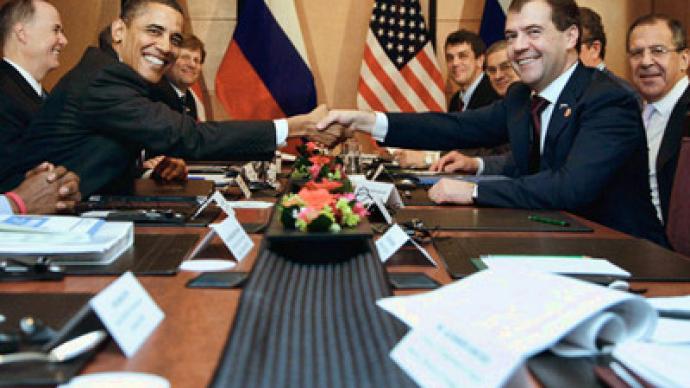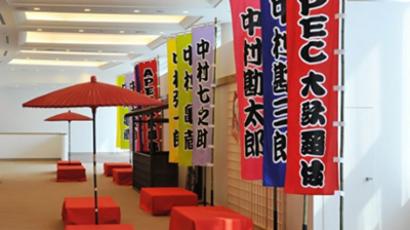New START treaty discussed in Japan

Global nuclear security has come into sharper focus on the sidelines of the APEC summit being held in Japan.
Presidents Dmitry Medvedev and Barack Obama have discussed the future of the new START Treaty, which would see the atomic arsenals of Russia and the US cut by a third.President Obama assured President Medvedev that the US Senate regards the issue of START treaty ratification as a top priority, and both leaders seemed very determined to keep to their commitments.The two leaders signed a deal to ratify the treaty in April, but it still needs to be passed by both the Duma and the Senate.
The chief US negotiator on the issue, Rose Gottemoeller, believes the ratification process has dragged on too long, and says it is now critical that it happens soon.“There is zero chance that we can get back to the negotiating table any time soon on tactical nuclear weapons unless we get this treaty into force,” Gottemoeller said. “It will be a profound blow to the US-Russian relationship and will cause some difficulties in terns of advancing our national security agenda with the Russian Federation.”
Richard R. Burt, America's chief negotiator for the first START treaty, which was signed in 1991, believes that not ratifying the treaty now would send the wrong signal to the world – and in particular to countries in some of the world's trouble spots.“Arms control is a critical component of dissuading other members of the international community from trying to go nuclear,” Burt stated. “And if we can’t get a modest arms control agreement ratified, aren’t we giving talking points to Ahmadinejad and Tehran? What impact are we having on Pakistan, on India and on other would-be nuclear powers in the greater Middle East? It has to be viewed as a massive setback in what I consider to be the fundamental security problem of our day, which is the spread of nuclear weapons to fragile, weak states and potentially on to terrorists.”
According to the head of the Franklin Roosevelt Foundation Yuri Rogulev, President Obama might try to persuade Congress to ratify the START treaty during the upcoming “lame duck” session (a Congress that assembles after its successor has been elected, but before the successor's term begins).”Just recently there were congressional elections, which changed the political atmosphere and changed the situation in the United States Congress, with the Republican party gaining many more seats,” he said. “It means that all of them, all of the newly elected congressmen have been criticizing Obama’s foreign policy and that is why President Obama and his administration could persuade Congress to consider this issue and to ratify the treaty during this so-called “lame duck” session of Congress, which starts tomorrow, November 15.”
According to political analyst Mikhail Troitsky, the non-ratification of a nuclear-reduction treaty would do serious damage to US-Russia relations. Still, there are other areas where the two could continue their “reset,” he believes.“If Russia considers its moves in advance and thinks them out thoroughly, then I think there is a chance the ‘reset’ will retain momentum and will develop along other parts such as Afghanistan, or possibly missile defense, or Russia-NATO relations in other areas,” he said. “But of course both the process of discussing the new START in the new Senate, should it be necessary, and the possible non-ratification or rejection by the US Senate of the new START would deal very serious blows to US-Russian relationships,” he concluded.
The summit in the Japanese city of Yokohama brought together the leaders of the 21 member states of the Asia Pacific Economic Cooperation (APEC) for two days of talks focusing on free trade and other pressing economic issues.













